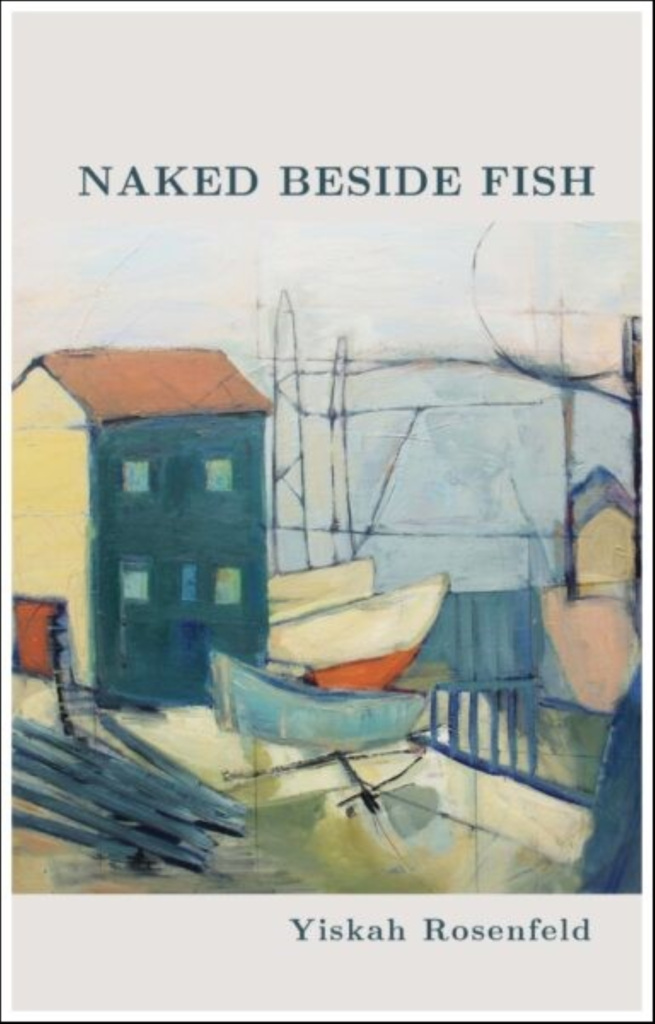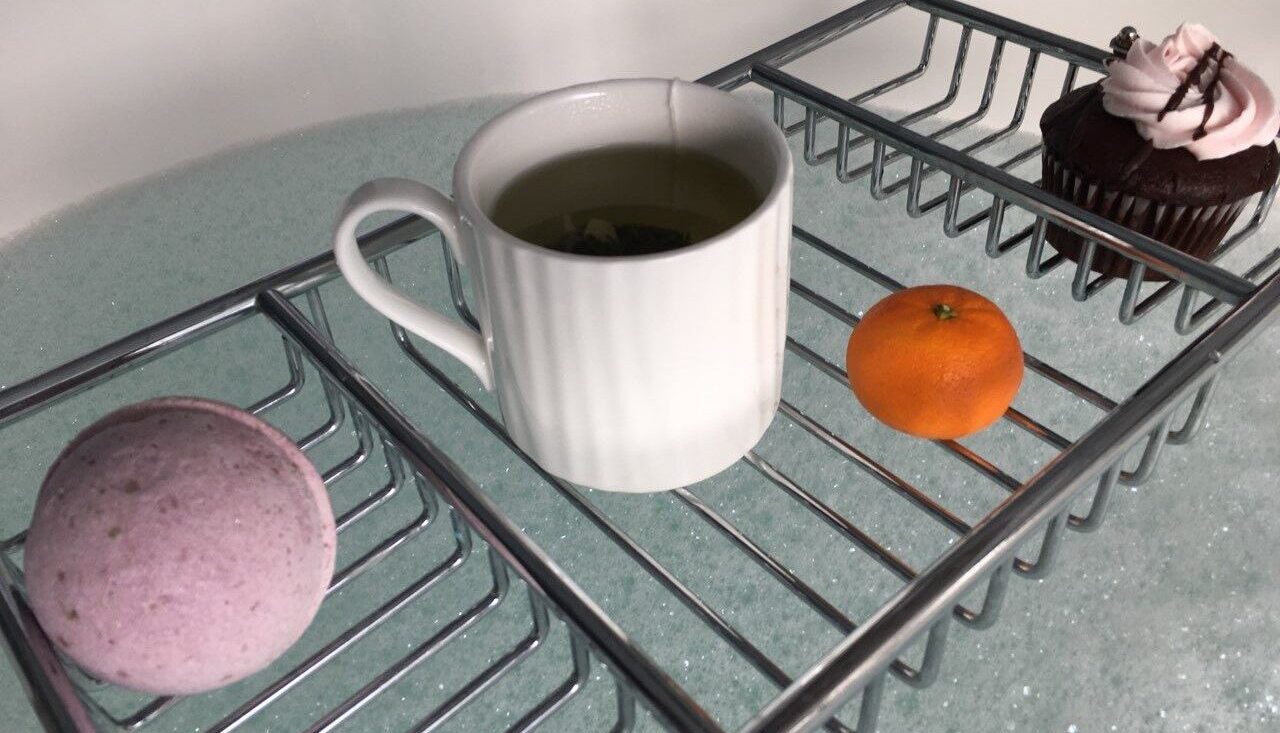Naked Beside Fish

Yiskah Rosenfeld’s marvelous ekphrastic-themed poems turn a poet’s eye on paintings and a painterly eye on the details of her own life. “Look and you’ll find me/an upside down angel in white,” she writes, finding herself in a Chagall painting. Brushstroke by brushstroke she builds a narrative of longing and listening in which inscape and landscape merge.
–David Shaddock, author of The Book of Splendor and Poetry and Psychoanalysis: The Opening of the Field.
In this evocative chapbook, Yiskah Rosenfeld does the magic of translation, taking readers inside works of art. In her hands, Robert Rauschenberg’s “White Paintings,” already transmogrified from canvas to music by John Cage, now enter the realm of poetry, or at least its promise, in the opening poem “Poetry Submission Guidelines.” The stark white canvas, white page, and ambient sound become our way into this collection. These are fully embodied, visceral poems that do not shy away from the pleasures and the challenges of bodies, especially the gestating body and its beauty.
-Laura Levitt, professor of religion, Jewish studies, and gender at Temple University, author of The Objects that Remain (2020).
Wordworks inspired by Kahlo, Klee, and other twentieth-century artists aside, what Naked Beside Fish brings to ekphrastic poetry is the incorporation of canvas-dynamic locales. A studio in Jerusalem creates “ladders of light angling through your morning windows.” A Sausalito museum annotates “That xylophone wind / awakening the pines.” Self-portraiture is a several-paletted thing. On Rosenfeld’s easel it’s an ultrasound, constellation-assisted journaling, “Bones under skin, gathered and sacked like garlic.” Rosenfeld’s chapbook masterclass attracts patrons for seasons to come.
–Jon Riccio, author of Agoreography (2022)
Naked Beside Fish locates itself firmly in the mystery of what lies between: between poetry and art, words and silence, the minutia of daily life and the infinite expansion of the cosmos. In this surreal space, inner and outer landscapes mirror and converge in surprising ways. Playfully structured around a museum exhibit, this ekphrastic chapbook takes us from art studios to camping under stars, from making mud soup at a children’s museum to picking out paint colors in the kitchen. There is even an imagined art gallery translated into words, featuring paintings by Matisse, Picasso, and Chagall, as well as a “gift shop” appendix. With exquisite use of metaphor, color, and imagery, these poems pierce the heart, tunneling beneath the surface of life’s canvas to name the emotions lurking beneath. The poet’s background as a feminist scholar is evident here, daring to confront the challenges of solo parenting while exploring the complexities of the female body as simultaneous subject and object of a painter’s gaze.

